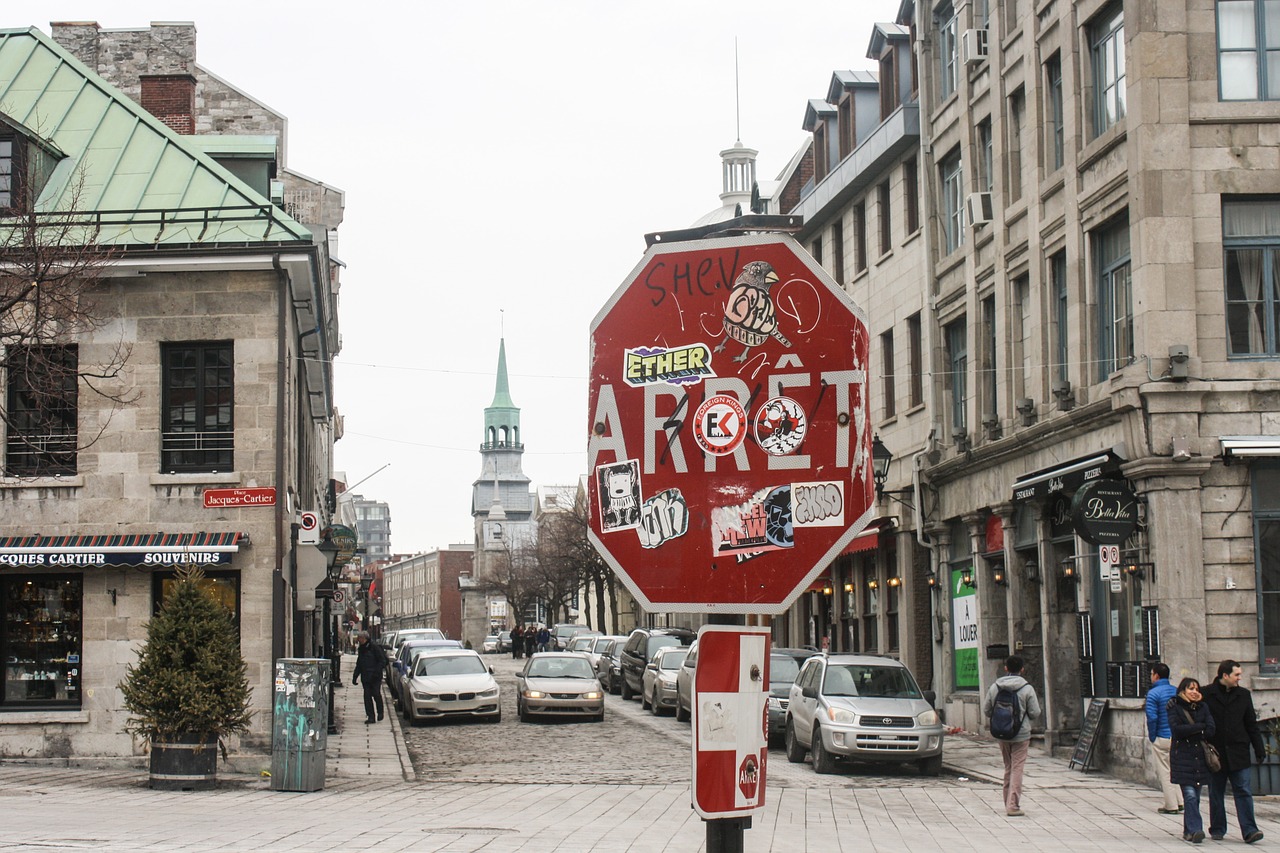Please support our coverage of democratic movements and become a supporter of rabble.ca.
“Privatize public lands” is an odd slogan for a socialist, but it could unite urbanists, ecologists and capitalists to transform Montreal into the most livable and ecologically sustainable city in North America.
Counterintuitive as it is, especially to those of left-wing persuasion, generally the less public space in a neighbourhood the more pleasant it is. And the less of a toll it puts on the planet.
Why is this? The answer is simple and so overwhelmingly a part of our shared existence that we have trouble seeing it. Most public land in urban areas is devoted to noisy, dangerous and polluting vehicles, which are the single biggest contributor to global warming.
The private automobile is a city and planet killer.
So much of our civic resources are spent on enabling cars that we have become slaves to its requirements. It is not just the money we spend to build and maintain roads and the other necessities of automotive existence, but also the way the car shapes the very form of our city. Or, to be more accurate, misshapes.
The problem can best be illustrated by the way many of Montreal’s genuinely attractive public spaces are ruined by our car craziness. A little park I pass daily at the corner of René Lévesque and Amherst is a case in point. It’s barely frequented because few want to relax next to six lanes of east-west traffic and drivers racing to reach a public monument that cuts downtown off from Old Montreal. Oddly, the Ville-Marie Expressway has been all but omitted from the debate about demolishing the expansive Agora sculpture in Viger Square. Agora or not, Viger Square is uninviting largely because it sits atop the expressway and is surrounded by multi-lane roads with drivers speeding on and off the highway.
Of course roadways are not the only public land devoted to automotive worship that harm central Montréal. The Maison Radio-Canada devotes more space to parking than its building and satellites. In the early 1960s, 5,000 people were forced to move to make way for what’s now largely a parking lot. While socialists don’t generally favour privatizing the public broadcaster, the plan floated in 2008 to sell CBC land to build 2,000 housing units would do wonders for the neighbourhood.
On a lesser scale the same is true of the Hydro-Québec headquarters, Jeanne-Mance Housing project and central police station. Their parking lots are blights on the Quartier des spectacles/Quartier Latin corridor and encourage vehicle use in an area well serviced by transit and lodging options. Privatizing these parking lots would raise tens of millions of dollars for the respective public institutions and the land could be put to commercial or other uses.
When public space is taken from cars and given to businesses, the improvements can be startling. Allowing restaurants, bars and stores to set up terraces or sell their goods on 15 blocks of Ste-Catherine Est four months of the year is incredibly popular, with pedestrians swarming the open streets. Local business profits improve, along with the atmosphere — both ecological and cultural.
We need to build on this experience, be bold. We need to harness the capitalist drive to privatize with urbanist principles and ecological sustainability.
Our first demand should be to sell off René Lévesque and turn the street into dwellings and businesses (rather than opposition party Project Montréal’s proposal to build a light rail). Large swaths of René Lévesque are wide enough to build a row of lodgings with a narrow street on each side. Privatizing René Lévesque would be a major step forward in rebuilding a walking city, a healthy city for its inhabitants and the planet.
Privatizing the arteries that feed the cancer weakening Montreal could lead to a healthier, more pleasant and ecologically sustainable city.
Urban dwellers, ecologists and capitalists unite! We have nothing to lose but the public spaces killing us!
A version of this article was published by the Montreal Gazette.
Please support our coverage of democratic movements and become a supporter of rabble.ca.
Image: Pixabay/kelseyannvere




